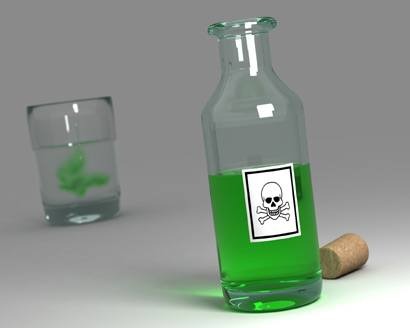12 Hidden Poisons In Your Food
These days, it's pretty easy to look around on the Internet and find lists of the best and worst fruits and vegetables ranked by the level of pesticide contamination. Look, we have one, too.
Click here to see the 12 Fruits and Vegetables You Should Always Buy Organic
And they're pretty much all based on the same study from the United States Department of Agriculture (USDA). But, have you ever wondered which pesticides are the worst? That's what we're here to find out.
Unsurprisingly, that information can also be found in the same study, the Pesticide Data Program. Roughly every year, the USDA tests a mix of domestic and imported food products for their pesticide levels, including fresh, canned, and frozen produce, meat and poultry, grains, water, and oddly, catfish. Samples are collected from states around the country, representing a majority of the population, and the results are then weighed against the Environmental Protection Agency's (EPA) established thresholds for pesticide residues.
The one bit of good news is that, at least for 2010, which is the latest year examined, the results were within acceptable standards on the whole. Although, whether you feel like the EPA's standards are safe enough for you is a personal (and perhaps, even political) decision.
But because the food you find at the supermarket comes increasingly from other countries (the Congressional Research Service estimates imports of fruits and vegetables alone have risen roughly 6 percent each year since 1990, with more than half the imports coming from Mexico, Canada, and Chile), we supplemented the government's list with some information relevant on a more international scale.
The Stockholm Convention on Persistent Organic Pollutants (organic, here, is not used in the "good" sense), a treaty aimed at reducing the worldwide use of certain persistent and pervasive toxic chemicals, has been ratified by 177 countries and went into effect May 17, 2004, drafted and adopted with the support of the United Nations Environment Program. Notably, the United States is not a party to the convention. However, the reduction in the use of such chemicals by other countries who are party to the treaty still has a significant impact on Americans.
Not only do these pesticides make their way into our imported food, but some of them also travel readily and easily through the atmosphere. Many of these pesticides are a great cause of concern for several other reasons — they accumulate in increasing concentrations as they move up the food chain, attaching themselves to the fatty tissues of people, livestock, and other animals; they also tend to persist in the environment for a very long time and often contaminate sources of fresh water; and they are associated with a host of health issues, including disruption of mental and physical development, cancer, and weakening of immune systems.
And Americans clearly care: In the wake of the economic downturn, sales of organic food have continued to climb. According to the latest report from the Organic Trade Association, sales of organic food (domestic and imported) totaled $31.5 billion in 2011, up 9.5 percent from the prior year. It looks like there are plenty of Americans who, amid growing concerns about the impact of pesticides and conventional farming practices on their health and on the environment, have made eating greener and healthier a priority.
To borrow an oft-used cliché (only because it fits), that's certainly food for thought.
Click here to see the 12 Hidden Poisons in Your Food Slideshow
Will Budiaman is the Recipe Editor at The Daily Meal. Follow him on Twitter @WillBudiaman.
